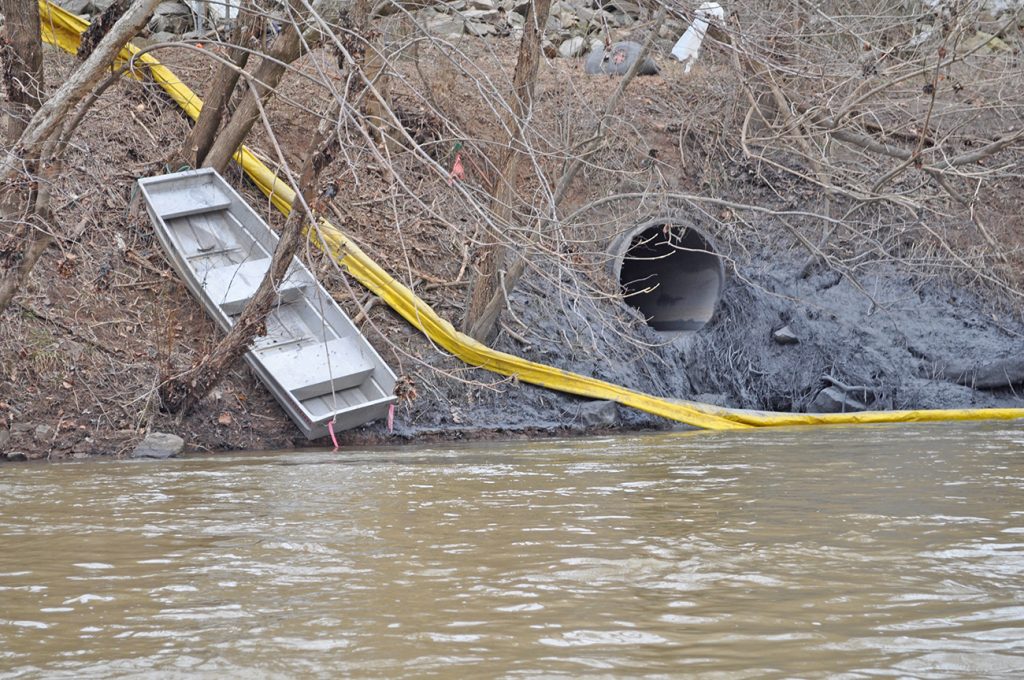Cleaning Up Coal Ash
For well over a century, power plants across the country have burned coal to generate electricity. And for just as long, leftover coal ash has been dumped in open, unlined pits near the power plant, usually located on a river or lake. Every year, U.S. power plants produce 130 million tons of coal ash, which is the second largest waste stream in the country after municipal garbage.
Coal ash concentrates the toxic heavy metals found in coal, including arsenic, mercury, lead and selenium. Stored in unlined, wet impoundments, coal ash has been leaking these toxics into our groundwater and surface waters for years. Sometimes these impoundments collapse — with disastrous results.
Yet government regulations for coal ash management are either non-existent or sparse, and there is little enforcement of the regulations that do exist. In North Carolina, this lack of oversight — and the complicity between state regulators, elected officials and Duke Energy — came to a boiling point in February 2014 when one of Duke’s coal ash impoundments spilled 39 million tons of ash into the Dan River.
Citizens living near North Carolina’s 33 coal ash impoundments — all of which have leaked — have fought for transparency from Duke and the state, and for cleanup of the pollution that threatens their property value, health and family. Their actions forced this issue into the headlines of news networks and to the forefront of environmental justice conversations in the United States.
Appalachian Voices stood with these communities as we worked for years to compel Duke Energy and the N.C. Department of Environmental Quality to excavate coal ash from all the North Carolina sites and dispose of it either in lined, dry landfills, away from waterways, or by recycling it for concrete or other uses, provided it’s done in a manner that protects public health and the environment.
On Jan. 2, 2020, North Carolina announced a historic settlement with one of the state’s most powerful corporations and polluters, Duke Energy. The settlement requires Duke to move nearly 80 million tons of toxic coal ash at six of its power plants to properly lined landfills onsite or recycle it.

Learn information about specific coal ash impoundments in the South, including health threats and safety ratings:
Additional Resources
Fact sheets, videos, links to academic research, and more
Sign Up to Act
Help us protect the health of our communities and waterways.
Latest News
Congress Passes Budget Deal
In a last minute deal, Congress passed a compromise budget in late April that will fund federal obligations through September 2017. The budget includes funding for miner’s health care benefits that were lost during bankruptcy hearings for the parent companies.
Residents Allege Herbicide Spraying Caused Health Problems
A group of Tennessee residents believe that excessive spraying of herbicides by Powell Valley Electric Cooperative in June of 2016 has caused major health problems for them and their pets.
Duke Energy Wants to Raise Rates to Pay for Coal Ash Cleanup
Energy giant Duke Energy has signaled to the North Carolina Utilities Commission that it will seek to raise its rates, in part to pay for the nearly $5 billion needed to clean up its coal ash impoundments.
Marching for Science and Climate and Other Shorts
Appalachian Voices was proud to join hundreds of thousands of U.S. residents who marched in Washington and around the nation for science and for the climate. We also released a new study on energy efficiency in Western North Carolina.
Tennessee Broadband Law Brings Opportunities and Restrictions
A new Tennessee law will provide $45 million in grants and tax credits for private companies to subsidize the buildout of rural fiber networks. It also allows rural electric cooperatives to provide broadband.
Environmental Votetracker — June/July 2017 issue
How Appalachian House and Senate members voted regarding several environmental issues in April and May.






